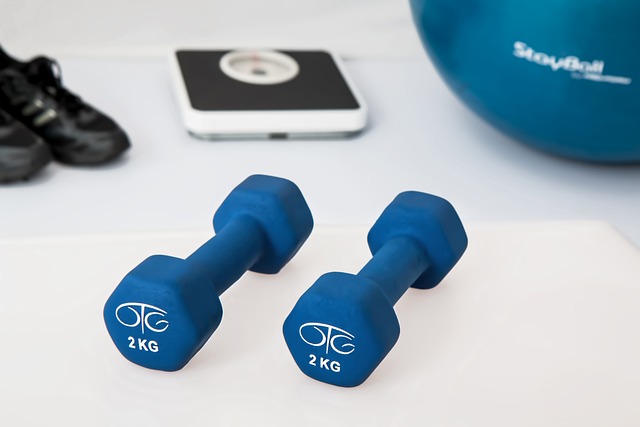Wellness plans that prioritize holistic health go beyond physical activity by addressing individual needs through tailored nutrition, stress management techniques (like mindfulness practices), self-care habits, and age/fitness-appropriate exercises. This approach, incorporating yoga, meditation, HIIT, and personalized programs, has been scientifically proven to reduce stress, improve emotional balance, enhance mental clarity, and promote overall well-being for all ages. Key elements include mindfulness practices, nutrition, sleep wellness, and self-care habits integrated into daily routines.
“Discover tailored fitness and wellness programs designed for every age and fitness level. From holistic health approaches that prioritize individual needs to effective stress management techniques like mindfulness and yoga, this comprehensive guide empowers you to enhance your well-being.
Learn how balanced nutrition at every stage of life supports optimal health, and explore personalized meal plans to fuel your body. Additionally, uncover self-care habits, sleep wellness tips, and emotional balance techniques to complete your holistic wellness journey.”
- Holistic Health Programs: Tailoring Wellness to Your Level and Age
- – Understanding individual needs based on fitness levels and ages
- – Benefits of a holistic health approach for overall well-being
- Stress Management Strategies: Incorporating Mindfulness and Yoga Routines
Holistic Health Programs: Tailoring Wellness to Your Level and Age

Exercise programs don’t have to be one-size-fits-all; holistic health plans consider individual needs and goals. For older adults, gentle yoga, tai chi, or brisk walking can improve strength, flexibility, and balance while promoting emotional well-being and stress reduction. Younger individuals might benefit from high-intensity interval training (HIIT) or strength training to build muscle mass and boost metabolism. Regardless of age, incorporating mindfulness practices like meditation or deep breathing into your routine fosters emotional balance and enhances the mental benefits of exercise.
Wellness plans for healthier living don’t stop at physical activity; they encompass a holistic approach. Nutrition and diet play a crucial role in overall health and well-being. Tailoring a healthy eating plan to your tastes and lifestyle encourages long-term adherence. Self-care habits like adequate sleep, stress management strategies, and engaging in activities you enjoy are integral components of a balanced wellness program designed to optimize your health at any age.
– Understanding individual needs based on fitness levels and ages

Creating a tailored exercise program that caters to individual needs is essential for achieving holistic health and wellness. Fitness levels and age play a significant role in designing effective routines, ensuring each person’s unique requirements are met. For instance, a beginner’s program might focus on basic strength training, flexibility exercises, and stress management techniques like mindfulness practices, whereas an advanced athlete would benefit from high-intensity interval training (HIIT), resistance circuits, and specialized yoga routines designed to enhance performance.
Understanding these differences enables professionals to offer personalized guidance, whether it’s developing nutrition and diet plans, prescribing specific fitness routines, or recommending self-care habits such as adequate sleep wellness tips. By considering age and current fitness levels, holistic health programs can effectively promote emotional balance and overall well-being, ensuring participants experience the full benefits of exercise while minimizing injury risks.
– Benefits of a holistic health approach for overall well-being

Adopting a holistic health approach is key to achieving overall well-being and unlocking long-lasting benefits for all ages and fitness levels. Wellness plans that encompass more than just physical exercise have been scientifically proven to reduce stress, enhance emotional balance, and improve mental clarity. By integrating mindfulness practices, such as meditation or deep breathing exercises, individuals can cultivate a sense of inner peace and resilience to navigate life’s challenges.
Holistic health programs also emphasize the interconnectedness of physical, mental, and spiritual aspects. Incorporating yoga routines, for example, not only strengthens the body but also calms the mind and fosters a deeper connection with oneself. Additionally, nutrition and diet plans play a pivotal role in fueling the body and mind, while self-care habits like adequate sleep wellness tips ensure optimal rest and recovery. This comprehensive approach empowers individuals to take control of their health journey and cultivate sustainable habits for a happier, healthier life.
Stress Management Strategies: Incorporating Mindfulness and Yoga Routines

Incorporating mindfulness practices and yoga routines into your wellness plans for healthier living can significantly enhance stress management strategies. These holistic health programs offer a unique blend of physical movement, breathing techniques, and mental focus that not only improve fitness and exercise performance but also promote emotional balance and self-care habits. Regular mindfulness sessions help individuals cultivate awareness of their thoughts and feelings, enabling them to develop effective coping mechanisms for managing stress.
Additionally, yoga routines incorporate nutrition and diet plans as part of a comprehensive approach to health. The slow, deliberate movements in yoga encourage mindful eating habits, while the emphasis on deep breathing promotes better digestion and overall sleep wellness tips. By integrating these practices into your daily routine, you can achieve optimal fitness levels while maintaining a balanced lifestyle that caters to both physical and mental well-being.
